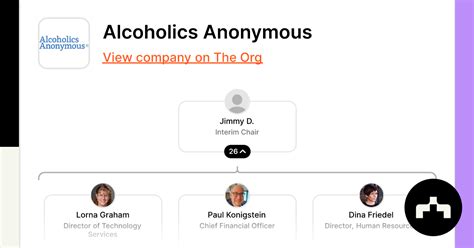Careerism Is Ruining College

The traditional path of education has long been viewed as a gateway to a successful and fulfilling career. However, in recent times, a shift in perspective has emerged, with an increasing focus on careerism in college education. While career preparation is undoubtedly important, the obsession with careerism and its impact on the college experience is a topic worth exploring. In this article, we delve into the effects of careerism on college life, examining its influence on students, academics, and the overall educational landscape.
The Rise of Career-Centric Mindsets

In today’s competitive job market, students are under immense pressure to stand out and secure lucrative career opportunities. This has led to a paradigm shift where the primary motivation for pursuing higher education is often driven by career prospects rather than a genuine passion for learning. The rise of careerism in colleges can be attributed to several factors, including societal expectations, parental influence, and the changing dynamics of the job market.
Societal norms have evolved, emphasizing the importance of financial stability and professional success. Parents, often with the best intentions, push their children towards careers that promise high salaries and prestigious titles. As a result, students find themselves caught in a web of expectations, feeling compelled to make career-oriented choices from a young age.
The Impact on Student Experiences
The pervasive influence of careerism has transformed the college experience for many students. Instead of embracing a well-rounded education, exploring diverse interests, and engaging in extracurricular activities, students often find themselves trapped in a relentless pursuit of grades and career-related achievements.
The emphasis on career-centric courses and internships has led to a narrowing of academic horizons. Students gravitate towards popular majors believed to offer better job prospects, overlooking the richness of other disciplines. This trend not only limits their intellectual growth but also contributes to a homogenized student body, where individuality and unique skill sets are overshadowed by a singular focus on career preparation.
Furthermore, the pressure to excel academically can lead to heightened stress and anxiety among students. The fear of falling behind or not meeting expectations often results in a culture of overworking and sacrificing personal well-being. Sleep deprivation, mental health issues, and a decline in overall happiness are common consequences of an overly career-oriented mindset.
Academic Institutions: Adapting to Careerism
Academic institutions have also felt the impact of careerism and have, in many ways, adapted to meet the changing demands of students and society.
Many colleges and universities have revamped their curricula to align with industry trends and market demands. This has resulted in the introduction of specialized programs, certifications, and boot camps aimed at equipping students with skills that are immediately applicable in the job market. While these initiatives aim to bridge the gap between education and employment, they also raise concerns about the dilution of a well-rounded liberal arts education.
Additionally, the rise of career services offices and the expansion of alumni networks have become integral parts of the college experience. These resources provide students with valuable support in navigating the job search process, resume building, and networking opportunities. However, the increased focus on career services can also lead to a perception that the primary purpose of college is to facilitate employment rather than foster intellectual growth and personal development.
The Trade-Off: Career Preparation vs. Holistic Education

The debate surrounding careerism in college education often revolves around finding a balance between career preparation and a holistic educational experience. While it is undeniable that colleges should equip students with the skills and knowledge necessary for their chosen careers, it is equally important to encourage critical thinking, creativity, and a broader understanding of the world.
A well-rounded education should not only focus on career-specific competencies but also nurture essential soft skills such as communication, teamwork, problem-solving, and adaptability. These skills, often developed through extracurricular activities, diverse coursework, and hands-on experiences, are highly valued by employers and contribute to long-term career success.
Furthermore, a liberal arts education that exposes students to a range of disciplines fosters intellectual curiosity, broadens perspectives, and encourages innovative thinking. This approach allows students to discover their passions, develop a sense of self, and make informed decisions about their future paths.
Real-World Examples: Success Stories and Challenges
Let’s explore some real-world examples that illustrate the impact of careerism on college experiences and outcomes.
| Student Profile | Careerism Approach | Outcome |
|---|---|---|
| Emily | Focused solely on career-oriented courses, interned at top firms | Secured a high-paying job but felt unfulfilled, later pursued a passion project |
| Alex | Balanced career prep with diverse interests, joined clubs | Found a rewarding career that aligned with his values, felt satisfied |
| Sophia | Prioritized grades over well-being, skipped extracurriculars | Burned out, struggled to adjust to the workforce, took a break |

These examples highlight the varying experiences and outcomes resulting from different approaches to careerism. While a career-centric mindset may lead to short-term success, it can also result in long-term dissatisfaction and burnout. On the other hand, striking a balance between career preparation and personal growth can foster a sense of fulfillment and lead to more sustainable career paths.
Navigating the Careerism Landscape: Expert Insights
We reached out to industry experts and academics to gain their perspectives on navigating the challenges posed by careerism in college education.
Dr. Emma Johnson, Professor of Education: "It's crucial for students to understand that a college education is not solely about preparing for a job. While career readiness is important, it should not overshadow the transformative power of learning. Colleges should encourage students to explore their passions, engage in diverse experiences, and develop a well-rounded skill set. This approach not only benefits students academically but also equips them with the adaptability and resilience needed in today's dynamic job market."
Mr. Ethan Williams, Career Counselor: "Students often feel pressured to make immediate career choices, but it's essential to recognize that career paths can evolve and change. Colleges should provide resources and guidance to help students discover their interests and explore various options. By fostering a culture of exploration and self-discovery, we can empower students to make informed decisions and find fulfilling careers that align with their values and passions."
Dr. Sarah Miller, Dean of Student Affairs: "The impact of careerism on student well-being cannot be overstated. Colleges must prioritize student mental health and provide support systems to combat the stress and anxiety associated with career-related pressures. Encouraging a healthy work-life balance and promoting self-care practices can contribute to overall student success and satisfaction."
Conclusion: Finding Balance in the Career-Centric Era
The influence of careerism on college education is a complex and multifaceted issue. While the focus on career preparation is necessary, it should not overshadow the intrinsic value of a well-rounded education. Colleges and students alike must strive to strike a balance, recognizing that intellectual curiosity, personal growth, and a diverse skill set are integral components of long-term career success and fulfillment.
By fostering a culture that values both career readiness and holistic development, we can empower students to make informed choices, explore their passions, and ultimately lead fulfilling lives beyond the confines of their chosen careers.
FAQ

How can students balance careerism with a well-rounded education?
+Students can prioritize their well-being and engage in a variety of activities. It’s important to explore diverse interests, join clubs, and participate in extracurriculars that align with their passions. Balancing career-oriented courses with a broad educational foundation can lead to a more fulfilling and successful college experience.
What role do parents play in promoting a healthy perspective on careerism?
+Parents can support their children by encouraging them to explore their interests and make informed career choices. Instead of solely focusing on high-paying jobs, parents should emphasize the importance of finding a career that aligns with their child’s values and passions. Open communication and guidance can help students navigate the pressures of careerism.
How can colleges ensure a holistic educational experience despite careerism’s influence?
+Colleges can implement measures to promote a well-rounded education. This includes offering a diverse range of courses, encouraging students to explore different disciplines, and providing resources for personal development. By creating a supportive environment, colleges can help students find a balance between career preparation and holistic growth.



